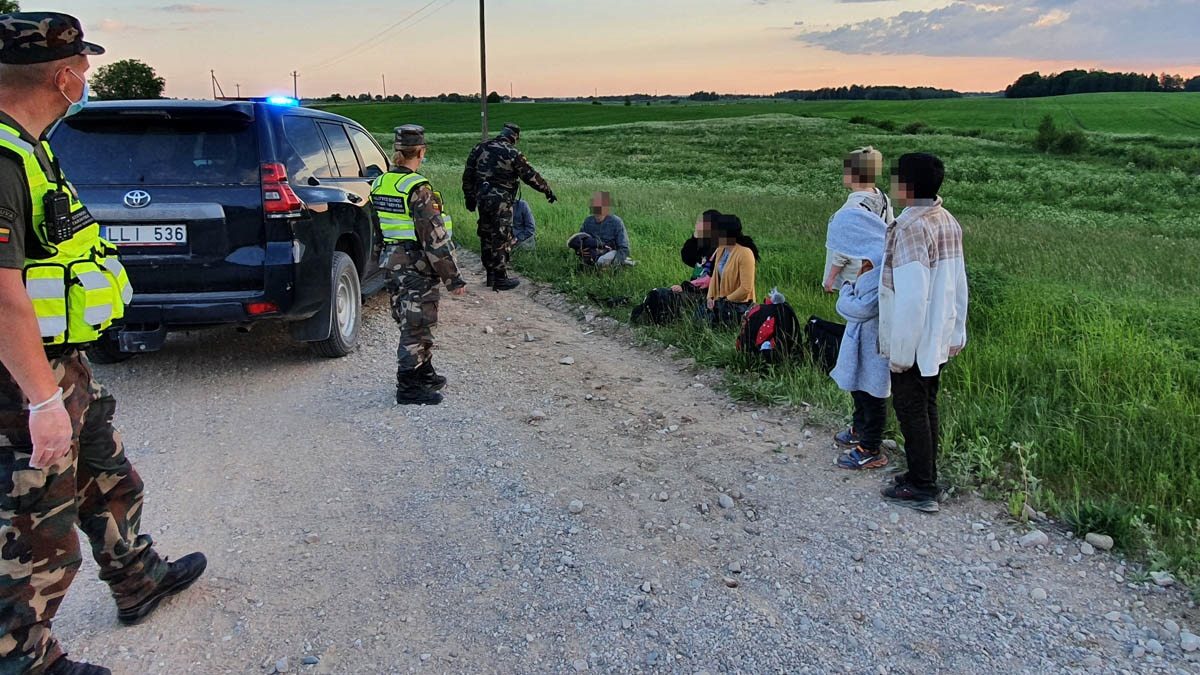In the Lithuanian border town of Bavoniskes, a small group of elderly residents gather at the local church on Sunday.
As they sat down, a priest in a flowing beige shirt went up to the altar to deliver his weekly sermon, then said a short prayer for the peace and security of the area.
Since Moscow began attacking Kiev in February 2022, Sunday services have become a big, crowded event.
Like residents of a dozen towns in eastern Lithuania, eastern Belarus, Russia’s closest ally, residents of Bavoniskes have left their villages in recent months. As the war in Ukraine is in full swing, they fear that Russia will invade their country soon.
A small Baltic country bordered by Belarus to the east and the Russian military stronghold of Kaliningrad to the south, Lithuania is a NATO member with a population of around 3 million that was heavily affected by the Russia-Ukraine war. Worried that the capital Vilnius is only 50 kilometers (31 miles) from Belarus, Lithuanian authorities increased border security at the beginning of the war and strengthened the border fence, starting to prevent irregular migrants from entering the European Union.
But despite increased economic protection and border security, Lithuania’s border region has turned into a ghost town as people leave their homes to find work and security elsewhere.
Rozalija, a 68-year-old Lithuanian from Bavoniskes, told Al Jazeera as she walked out of the old church with a small towel in her hand, “This place is no longer safe.”
Like many young people, Rozalija’s three children grew up in Barvoniskes last year.
“We don’t really see anybody anymore – everybody’s gone,” he said.
Lithuania responded by accusing Belarus of arranging large numbers of irregular migrants from Africa and the Middle East, estimated to be more than 4,000 years old, in August 2021.
In July 2021, as a first response to the situation, Vilnius ordered the construction of a 520-kilometer (323 mi) fence along the border with Belarus.
With the war in Ukraine in full swing, Vilnius has approved a special budget of 152m euros ($169m) to speed up the construction of the border fence (to be completed in August 2022) and to give the border police the right to stop the migrants.
Belarus denies the allegations, while Vilnius seeks 120m euros ($133m) in compensation from its neighbors and announced in Minsk in April that it was paid to Lithuania “to eradicate poverty not only by keeping migrants but also by strengthening our borders”.
Moser, the Lithuanian border guard in Ravoriskes, said it was difficult to secure the country’s eastern border, despite the installation of fences and surveillance cameras.
